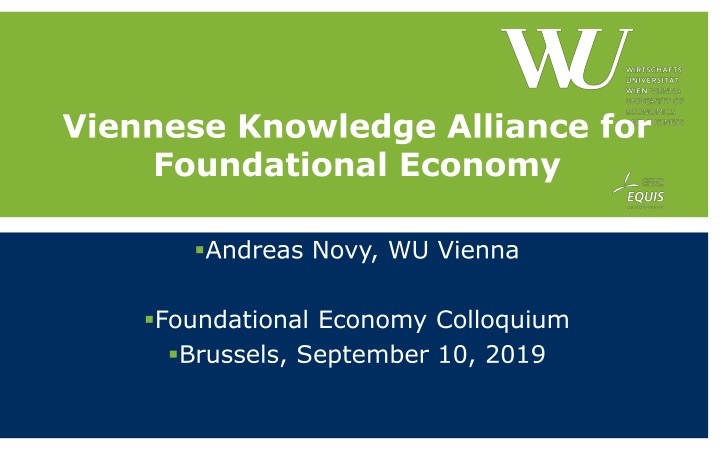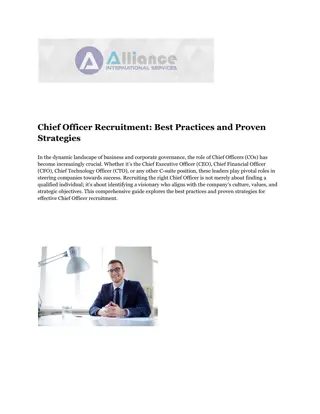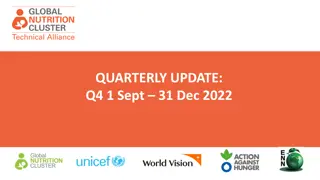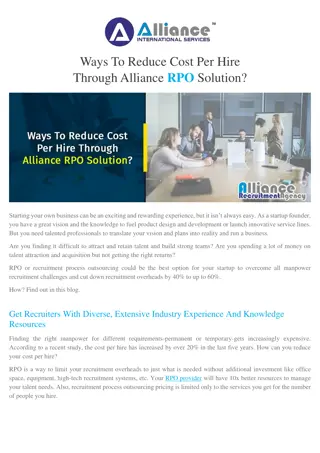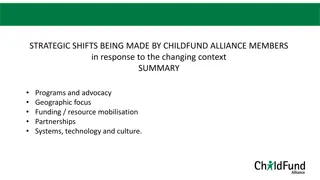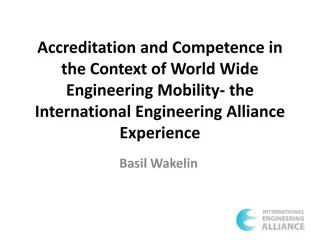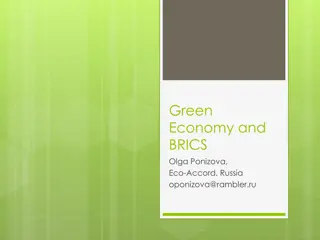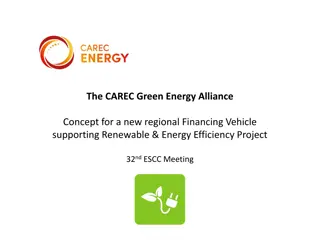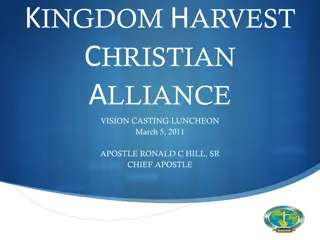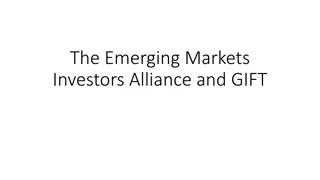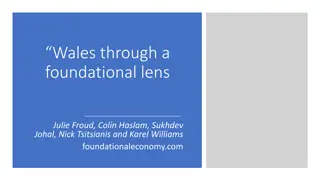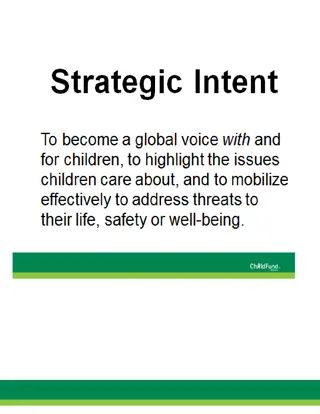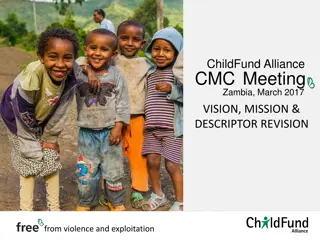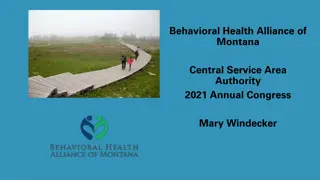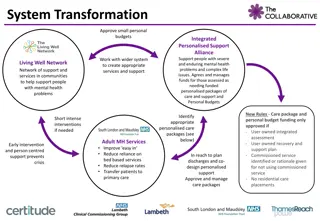Vienna Knowledge Alliance for Foundational Economy
Vienna Knowledge Alliance for Foundational Economy focuses on building social-ecological infrastructure, promoting universal basic services, and fostering a good life for all in Vienna. The alliance involves practitioners, researchers, civil authorities, and civil society in co-creating sustainable infrastructure. It highlights Vienna's historical and current efforts in foundational economy, such as the Red Vienna era and pilot projects for urban regeneration.
Download Presentation

Please find below an Image/Link to download the presentation.
The content on the website is provided AS IS for your information and personal use only. It may not be sold, licensed, or shared on other websites without obtaining consent from the author.If you encounter any issues during the download, it is possible that the publisher has removed the file from their server.
You are allowed to download the files provided on this website for personal or commercial use, subject to the condition that they are used lawfully. All files are the property of their respective owners.
The content on the website is provided AS IS for your information and personal use only. It may not be sold, licensed, or shared on other websites without obtaining consent from the author.
E N D
Presentation Transcript
Viennese Knowledge Alliance for Foundational Economy Andreas Novy, WU Vienna Foundational Economy Colloquium Brussels, September 10, 2019
Knowledge Alliance & Socialecological infrastructure Knowledge Alliance: Long-standing partnership of practitioners and researchers Co-Creation of civil authorities, researchers and civil society Social-ecological infrastructure: Sustainable and accessible social and material infrastructure universal basic services (and infrastructures) Infrastructure of a good life for all Normative concept
Vienna and FE Vienna: building of social-ecological infrastructure from the 19th century onwards (anti-semitic christian-social municipalism) Red Vienna (1919-1934): crucial part of progressive imagination (including for FE) Today: Leading position in city rankings Quickly growing city (approx. 2 mio. in 2025) => Potential to become a role model for FE FOLIE 3
Knowledge Alliance for the Foundational Economy in Vienna November 2018: Congress on Foundational Economy in the Vienna City Hall Hosted by deputy-mayor Maria Vassilakou 250 participants from diverse institutional backgrounds (administration, research, city planner, movement activists) Successful introduction of FE in the Viennese planning discourse German publication Key inputs of the conference Pilot research project
Keynotes of FE-Conference Karel Williams: Building grounded towns and cities Oriol Estela: Strategic Urban Planning and Foundational Economy in Barcelona Jenni Lloyd: Lessons from ShareLab Dirk Holemans: Ghent, city of commons
Pilot Project on FE Two sites in Vienna: Johann Nepomuk Vogl Platz (W hring): urban regeneration of a market/square Pedestrian Zone in Favoritenstra e (near Vienna main station- Favoriten) Funded by Department for City Planning (MA18) Support by Deputy Mayor Maria Vassilakou (2010-2019)
Key questions (for research and policy making) of research question How to regenerate and avoid (as far as possible) gentrification? How to strengthen neighbourhood centers by promoting FE? FOLIE 7
Pilot Project in Whring Medium-sized district (approx. 50.000 inhabitants); middle class, but highly mixed neighourhood with upgrading tendencies Strong interest of district mayor Political will to implement changes Pilot project as one part of a broader local renewal strategy Questionnaire with residents Residents of neigbouring housing blocs (220 questionaires) 3 bachelor theses Final results published by the Vienna Department of Planning (hopefully in september)
Pilot Project in Favoriten Favoriten: large district (approx. 200.000 inhabitants); working class, migrant and middle-class population, new middle class neighbourhood built nearby district mayor with huge responsibilities for a (very) large district Pilot project as an initiator for further research and renewal acticivies Mapping of retailing, open spaces and initiatives Final results published by the Vienna Department of Planning (hopefully in september)
Key Findings (1) (1) Economic and non-economic development have to be better integrated => integrated neighbourhood development fostering FE (2) Neighbourhood centers and FE have to go hand in hand (3) Public actors have to be better coordinated (coordination beyond departments and agencies)
Key Findings (2) (4) FE and ecological sustainability have to go hand on hand (5) Local business plays a key role as care-taker of public space (6) Decisive role of district mayor / local neigbourhood management as coordinator of diverse stakeholders (7) Avoiding that promotion of regeneration facilitates gentrification (stronger focus on housing)
Next Steps (1) Continuation of the Pilot Project in Favoriten Focus on cultural initatives Focus on housing Constitution of a city-wide Knowledge Alliance on FE MA 18 (City Planning): Revision of the Urban Strategic Plan will include FE MA 23 (Economic Affairs) Knowledge Alliance on Services of General Interest (Leonhard Plank): to be founded on september 13, 2019 (in the Kari Levitt- Polanyi seminar room of MA 23
Next Steps (2): Impasses Lack of a culture of debate and critique Conflicts are not tackled explicitly (eg. the dialectics of a growing city : blessing and curse) => Planning is lacking effectiveness
Next Steps (3): Impasses Challenge of building civil society support for FE Difficulty of civic-public partnerships on equal footing Vienna is world champion in service delivery; but has difficulties to tackle issues of participation and diversity (eg. for joint definition of needs and co-provisioning of services). Endangered political will Deputy Mayor as mentor left politics Municipal elections in 2020: The end of Red-(Green) Vienna?
